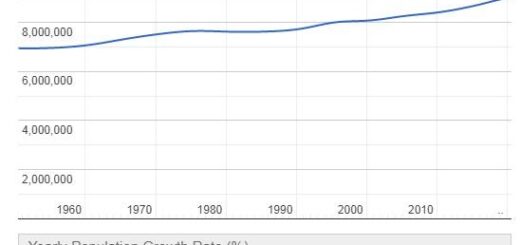Russia During Elizabeth and Peter III
Lively, but superficial and futile, Elizabeth did not change the tone of life of the court: the favorites dominated, crazy expenses followed one another. Elisabeth’s German tastes were replaced by a more refined French style, not separated from a distinctly Russian, indeed Muscovite, note of the new empress. If Anna and her favorite Biron had harbored the keenest contempt for Russian folk traditions (after all they saw in Russia only an immense territory capable of giving employment and benefits to numerous Germans), Elizabeth instinctively loved these native traditions. The men to whom he entrusted important tasks were also Russians.
The death penalty was replaced in many cases by corporal punishment; an academy of fine arts was built (Petersburg), the first university was founded (Moscow, 1755), a general direction was given by the empress in which some traits of enlightened absolutism were not wrongly noted.
Upon Elizabeth’s death (December 25, 1761 – January 5, 1762), her nephew Peter (Peter III) succeeded her to the throne. Born in Holstein, educated Lutheran to one day ascend to the throne of Sweden, from the very beginning he showed contempt and aversion against Russia whose fate had put him at the head. Coarse and childish, he was an admirer of Frederick II, of all that was German and Swedish and did not hide from anyone, not even as a measure of prudence, his dislike for the Russian people. His cynical and buffoonish attitude demonstrated on various occasions, for example at the funeral of Elizabeth, had strengthened the rumors that the emperor was a madman. His tyrannical mentality, never out of an infantile stage, and his Lutheran upbringing led him to take serious measures against the Orthodox Church. Not only did he continually make fun of the Orthodox rites, but he even went so far as to give orders that the “private chapels” be closed; he also attempted to have the sacred images removed from Russian churches and to force the clergy to dress in civilian dress. The indignation of all classes against Peter III was growing rapidly. The wife of the emperor, Catherine, a victim of the strangeness and coarseness of Peter herself, dethroned him (at the head of various regiments) on June 28 (July 9) 1762.
Russian foreign policy from the death of Peter the Great to the advent of Catherine II to the throne. – The close connection between Russian foreign policy and general European policy characterized, as we have seen, the action of the Petersburg government after the death of Peter the Great. His successors, up to Catherine II, lacked the political sense, the skill and resoluteness of maneuver of the founder of the new Russia; and therefore the results were either scarce or even negative: but the living of Russia in the general European atmosphere, which was perhaps the greatest result of Peter’s work and which was to represent an event of fundamental importance for the history of Europe. So that, from the beginning of the eighteenth century onwards, the very question of the outlet to the Black Sea,
And this was clearly seen in the new war against Turkey, which began in 1736, carried out in 1739: war waged in unison with Austria (the Austro-Russian alliance against the Turks dates back to 1726) against the Sublime Porte, marked for the Russians by a great victory obtained on August 17, 1739, following which the Russian army entered Iaşi, and closed for Austria with the peace of Belgrade, for the Russians with the peace of Constantinople. This, however, was certainly not a great success for the Russian government: in fact Azov, although already occupied, was established in a neutral border area. Final failure – similar to that of Austria – which was largely due to French diplomatic action, always patroness of Turkey against Russia and Austria.
But the war itself against Turkey had arisen in close connection with another question: the Polish question.
The decisive intervention of Peter the Great in the life of the neighboring state, his aspiration to make Poland a vassal state, continued in fact, under the Empress Anna, in 1733, on the death of August II, in the armed intervention of the army Russian to force the Polish diet to elect his son, August III, king in place of the Polish Stanislao Leszczyiński, father-in-law of the French king Louis XV, whom the Polish nobles had already designated as head of state.
The act of force of the government of Petersburg determined the outbreak of the war of the Polish succession, on which the war against the Turks was to be grafted in 1736. And if the latter was to end substantially to the disadvantage of Russia, the Polish war, which ended as early as 1735, instead gave the Russians virtually a free hand in Poland, which since then remained for the entire reign of Augustus III, under the effective protection of the government. Russian (v. Poland).
But the Polish question had brought Russia and Austria even closer together; the Russian intervention in Poland in 1733 had taken place after agreement with the emperor, who had thereby sought to secure the Russian alliance against Turkey and had also secured the approval of the Petersburg government for the “pragmatic sanction”. Thus, at the beginning of the war of the Austrian succession, Russia was engaged with Austria; while on the other hand there were ties with Prussia – ties originating from the common hostility and struggle against Sweden – which Prussia was joining just then with France against Austria.
The result was the mediating and conciliatory action between Berlin and Vienna that the Russian government tried to carry out and the action of France to immobilize Russia: an action that led to the war of Sweden – the great Nordic vassal of the court of Paris – against the Russia (1741-1742).
Such was the international situation at the time of the accession to the throne of Tsarina Elizabeth and the fall of the “Germans”. The internal upheaval seemed to have a strong impact on foreign policy, given the active participation of French diplomacy in the coup: but the war against Sweden nevertheless prevented at first that the French influence at court would determine a different orientation of Russia in the regards to continental warfare. Only when the peace of Abo (June 1743) had put an end to the Swedish war (Russia acquired the Kymmenagor district in Finland) did he regain direct interest in European affairs.
The diplomatic maneuvers around Elizabeth to grab her help were continuous and insistent: but nevertheless Russian politics ended up by remaining substantially inactive: now orienting itself in a clearly anti-Austrian sense; now she is worried about the successes of Frederick the Great of Prussia, orienting herself in an anti-Prussian sense. Ultimately, however, concerns about the Prussian danger ended up gaining the upper hand: in May 1746 an Austro-Russian alliance treaty was stipulated, followed by a new Russian-English treaty in 1747; at the end of 1947 the Tsarina Elizabeth was finally sending an army to the Rhine and to the Netherlands.
The rapid conclusion of the peace (Aachen, 1748) meant that Russian participation in the war had no concrete effect: but from the alternative of attitudes and opinions that had characterized Russian politics in the first phase of the war, it had now passed to a firm observation: Prussia was a danger, and for the European balance in general, and in particular for Russia, given the Polish question. This principle guides Russian politics in the period 1748-1761.
For if immediately after the Peace of Aachen the Russian-Prussian conflict immediately affects relations with France, still a friend of Frederick the Great, when the “overturning of alliances” (1756) occurs, that is, when the Austro rapprochement takes place -French, Russia is, by force of circumstances, led to unite with France too: the anti-Prussian coalition and the Seven Years’ War ensue (v.). Which, begun by the Russians in 1757 with the unexploited victory of Grossjägerdorf, continued with the occupation of Königsberg (1758); in August 1758 the bloody defeat of Zorndorf deprived the Russians of the offensive possibilities, but in 1759 they resumed their successes, with the great victory of Kunersdorf, and in October 1760 the Russian troops invaded Brandenburg, occupying Berlin itself. But the death of Tsarina Elizabeth (January 5, 1762) and the accession to the Russian throne of Peter III abruptly ended the struggle. In fact, Peter, very hostile to France and Austria, on the other hand a fanatic admirer of Frederick II, interrupted military operations and concluded peace with Prussia.



